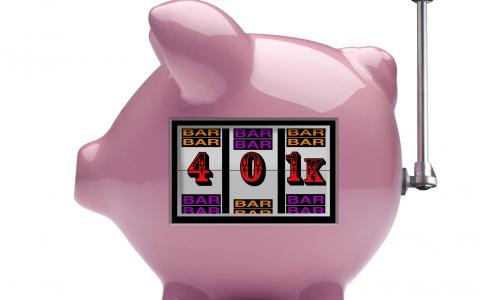
(Fool) If you're saving in a 401(k) plan, you're probably aware that the money you sock away today will come in extremely handy once retirement rolls around.
And if you're already retired and have a 401(k), you're probably thanking your lucky stars that you were smart enough to contribute to that account during your career.
But no matter what stage of life you're in, now's the time to start thinking about how best to manage your 401(k) during the upcoming year. Here are a few essential moves to make in 2019.
1. Increase your contributions
You probably know that the annual contribution limits for 401(k)s are much higher than they are for IRAs. And beginning in 2019, workers will get an even greater opportunity to save for retirement. That's because those limits are increasing to $19,000 for workers under 50 and $25,000 for those 50 and over. (Currently, younger workers max out at $18,500, while older ones max out at $24,500.)
If you're in the habit of contributing the maximum each year to your 401(k), be sure to account for these increases, and tell your employer you want that extra $500 deducted from your paychecks during the year. Not only will that additional $500 work to boost your nest egg, but if you're saving in a traditional 401(k), it'll also lower your 2019 tax bill. In fact, you'll save $150 in taxes if your effective tax rate is 30%.
2. Review your investments
It's always a good idea to check on your 401(k) investments periodically and make sure they're meeting your needs, so as the new year kicks off, make it a point to log into your account and see how the funds you've chosen are performing. If you're not seeing the returns you want, it may be time to shift things around -- either by diversifying or by getting a bit more aggressive in your choices.
At the same time, take the opportunity to look at the fees you're paying on your investments. If you've mostly loaded up on actively managed mutual funds, you'll lose a lot more money to investment fees than you will with index funds, so you might consider making a switch to retain more of your profits.
3. See if you need to take your first RMD
The money in your 401(k) can't just sit there forever. If you're already retired, 2019 may be the first year you're on the hook for required minimum distributions, or RMDs. The exact amount you'll need to withdraw from your account will depend on your balance and life expectancy, but know that if you neglect to take that distribution, you'll be assessed a 50% penalty on whatever funds you fail to remove. And that's a hit you don't want to take.
Your first 401(k) RMD must be taken by April 1 of the year following the calendar year in which you turn 70-1/2. Therefore, if you turned 70-1/2 this year, you have until April 1, 2019, to withdraw those funds.
That said, there is an exception: If you're still employed by the company sponsoring your 401(k) when you turn 70-1/2 and you don't own 5% or more of that company, you can hold off on taking RMDs for as long as you continue to work there. Once you leave that job, however, you'll need to start taking those mandatory withdrawals.
The smarter you are about your 401(k), the better it will serve you during retirement. Make these critical moves next year, and you'll be thankful for it down the line.



